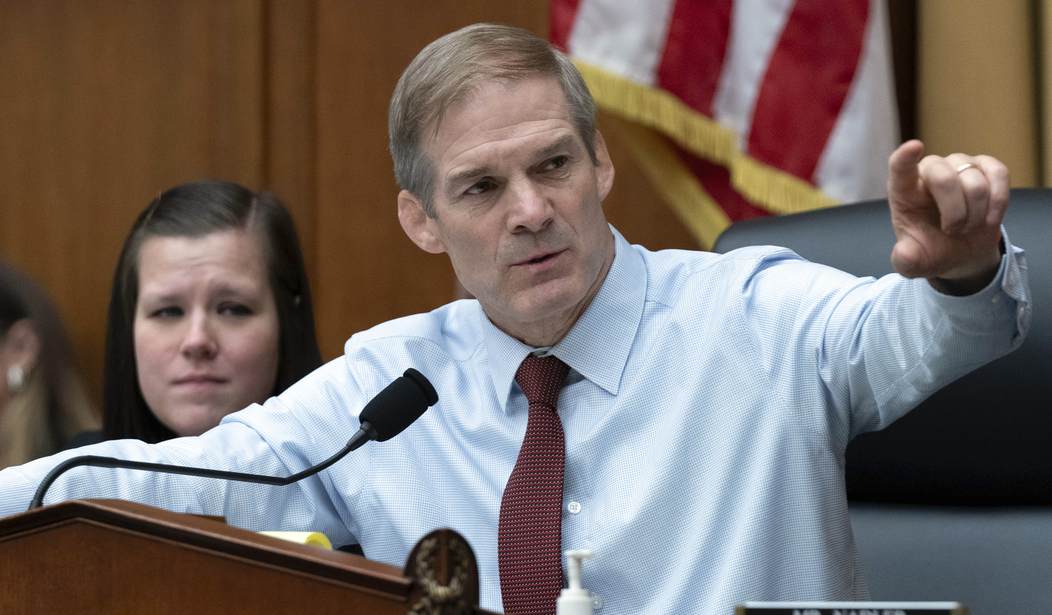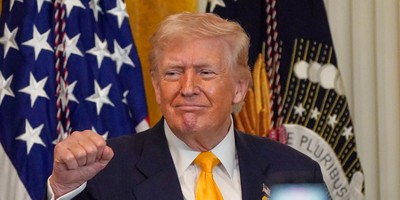House Judiciary Committee Chairman Jim Jordan (R-OH) is continuing to crackdown on those who would collude with Big Tech to censor Americans. Jordan has not only subpoenaed the social media platforms themselves, but now the FBI and the Department of Justice (DOJ) as well, as evidenced by Thursday letters.
As the letters to both FBI Director Chris Wray and Attorney General Merrick Garland make clear throughout, the voluntary compliance with the Committee's request has been "woefully inadequate."
#BREAKING: Chairman @Jim_Jordan subpoenas FBI and DOJ in Censorship Investigation Over Big Tech Collusion
— House Judiciary GOP 🇺🇸 (@JudiciaryGOP) August 17, 2023
📍Read the subpoena cover letter to Garland here: https://t.co/5UmJs8Ob7H
📍Read the subpoena cover letter to Wray here:https://t.co/26XLuemk9v pic.twitter.com/0rs1qmBhhc
Referenced in the letters is a request sent out on April 18, four months ago now, in which the Committee, among other things, asked for "communications between FBI employees and private companies, internal communications, and communications between the FBI and other third parties discussing content moderation." The same goes for the DOJ.
However, in all that time, both the FBI and DOJ produced only a single document, the transcript of a deposition of Federal Bureau of Investigation Assistant Special Agent in Charge Elvis Chan from Missouri v. Biden, the case examining the Biden administration's compelling social media platforms to censor free speech, especially when it comes to do with conservatives.
"This production is woefully inadequate and omits voluminous responsive material, including communications between FBI and tech companies, internal communications, and communications between FBI and other executive branch entities," the letter pointed out, saying the same about the DOJ's response.
Recommended
The transcript was already a publicly available document.
Agent Chan's testimony is also relevant in that Jordan's letters note that his Committee "has uncovered evidence that contradicts several statements in Agent Chan’s deposition, particularly as they relate to his communications with social media platforms."
Mentioning the the U.S. District Court for the Western District of Louisiana, Jordan's letters note that the court found that communications from the FBI and other executive branch entities, including the DOJ, very likely violated the First Amendment rights of Americans. This includes Agent Chan and Agent Laura Dehmlow, the latter who had been mentioned in testimony revealed in July by the Select Subcommittee on the Weaponization of the Federal Government, which Jordan also chairs, for her role as the Section Chief of the FBI’s Foreign Influence Task Force (FITF) and for her role in censorsing the Hunter Biden laptop story just before the 2020 presidential election.
And yet the FBI and DOJ have still withheld information, which hampers the Committee's ability to conduct oversight. "Yet you have produced nothing of substance in response to the Committee’s request, which hinders the Committee’s ability to fulfill its constitutional oversight obligations. The Committee has engaged with the FBI in identifying the Committee’s highest priority documents and information in both letters to you and during calls with Committee staff," Jordan's letter say in calling out both Wray and Garland.
Jordan's letters had begun by pointing to the objective of "is conducting oversight of how and the extent to which the Executive Branch has coerced and colluded with companies and other intermediaries to censor speech. To develop effective legislation, such as the possible enact mentof new statutory limits on the Executive Branch’s ability to work with social media platforms and other companies to restrict the circulation of content and deplatform users, the Committee on the Judiciary must first understand the nature of this collusion and coercion."
The letters give Wray and Garland a date of September 15 to respond with those internal documents.

























Join the conversation as a VIP Member